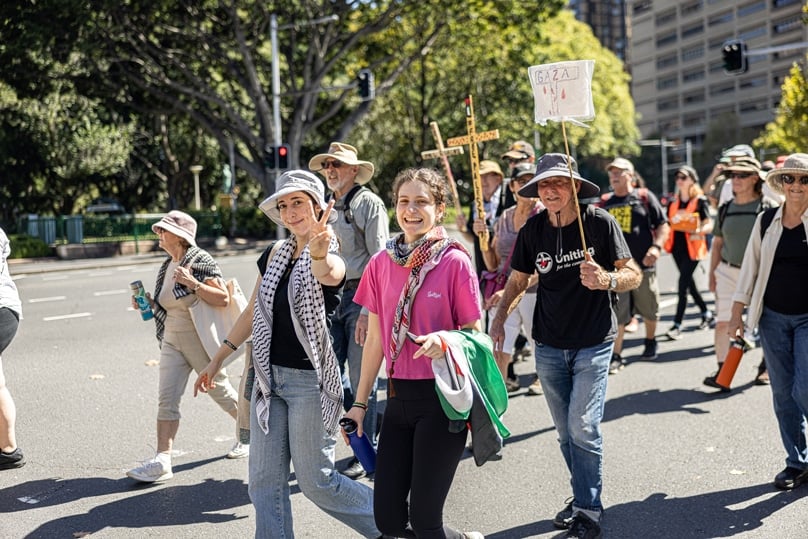
An advocacy group struggling to support Christian families fleeing the war in Gaza says the Australian Government needs to ensure more refugees trapped at the border are able to settle here.
President of Christian Palestinians in Australia Suzan Wahhab said some families remain trapped at the Rafah crossing with Egypt even after being granted tourist visas which would allow them respite in Australia.
Wahhab said her organisation has pivoted from advocacy to charity, using funds from dedicated church collections to place nine families in accommodation and planning to assist three more.
But it expect 50 more Christian families to arrive in the country in the coming weeks and months who are not yet eligible for bridging visas and has been gearing up to help with accommodation, furniture and food assistance, and enrolling children into schools.
“We need the government to put their names on the border because without that people here are having to raise exorbitant amounts of money for so-called ‘handler’s fees’ of around US$5000 per person to get family members out to Cairo, before even getting their plane tickets,” she told The Catholic Weekly.
Less than one per cent of Gaza’s population are estimated to be Christian, and Gaza’s St Porphyrius Orthodox and Holy Family Catholic churches are still sheltering refugees six months after Hamas’ deadly attacks on Israel sparked the latest war.
Wahhab hopes a series of symbolic ‘Via Dolorosa’ pilgrimages around the country will raise awareness and funds for these forgotten Christians, with a third to be used for housing Gaza families in arriving in Australia and a third going to families in Gaza. The remaining third will fund its advocacy work.
Supporters joined a Sydney pilgrimage walk from Crows Nest Uniting Church to St Mary’s Cathedral on 6 April covering 41kms, the same distance as the length of the Gaza strip which refugees from Gaza city must walk to the Rafah crossing.
“They don’t have much, they have seen their houses and businesses destroyed and when they come here they are shocked at how expensive it is in Australia,” Wahhab said.
“That’s why we have stepped in to do this work but this is work that governments should be doing because they already have the structures and the systems for refugee services.”
